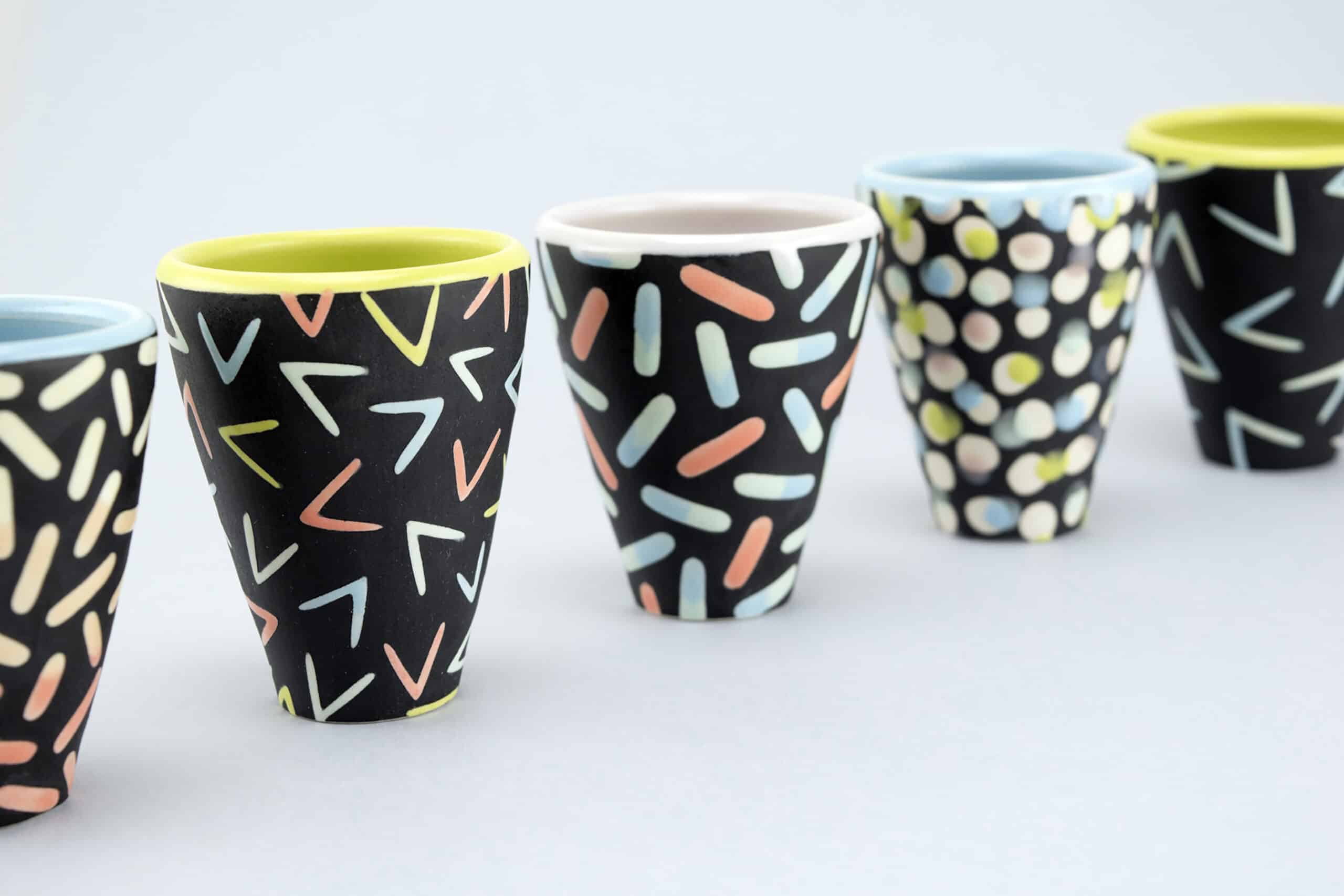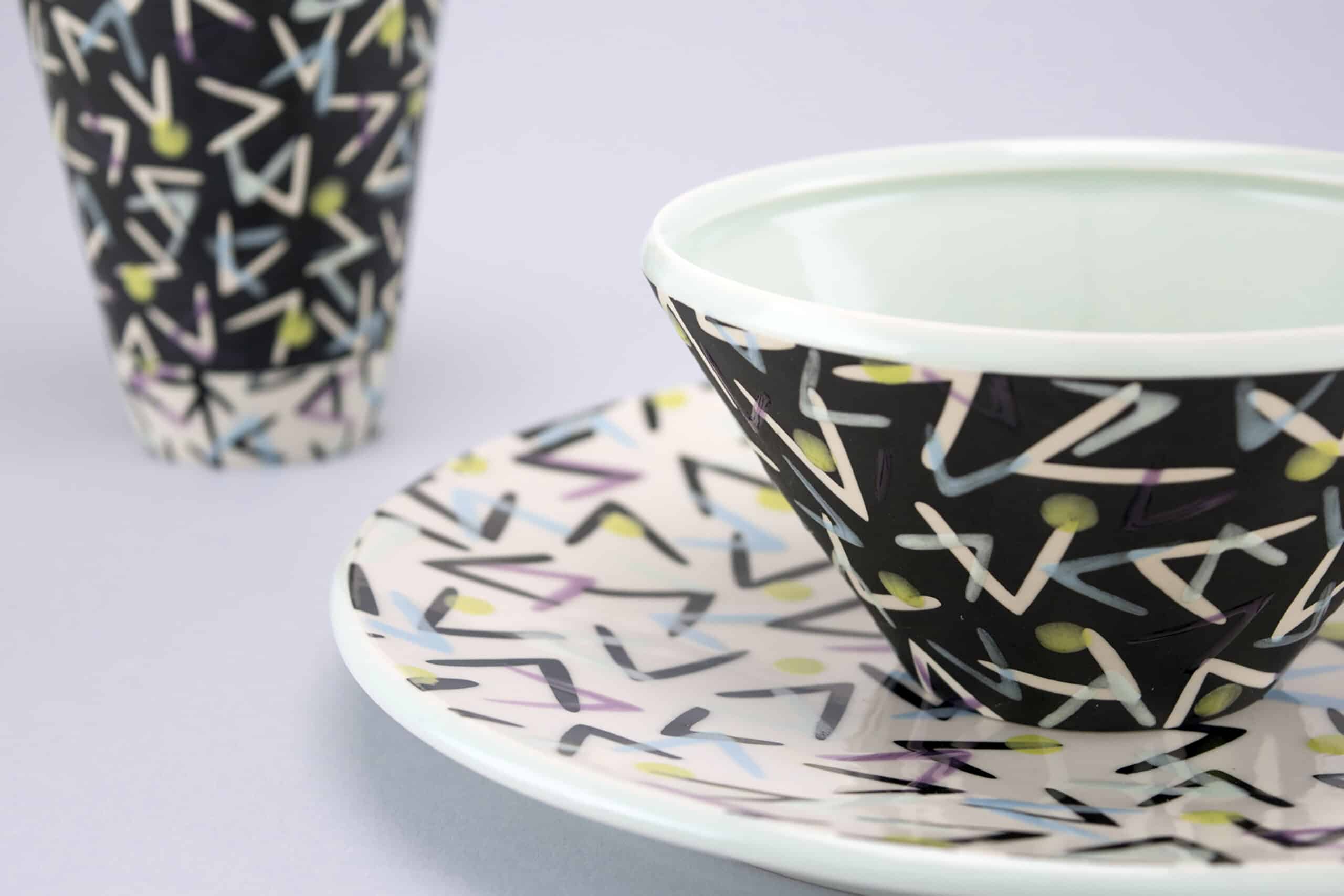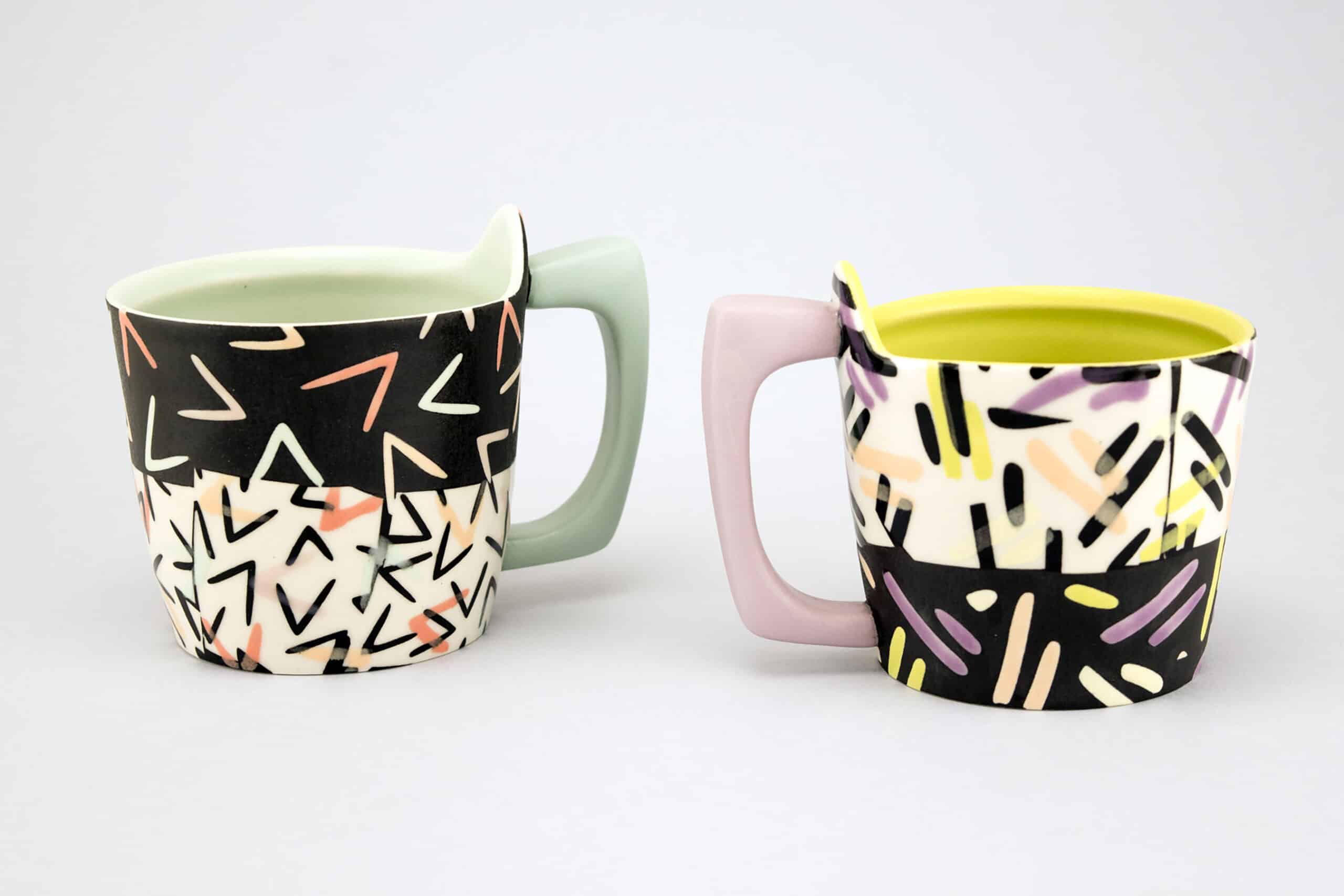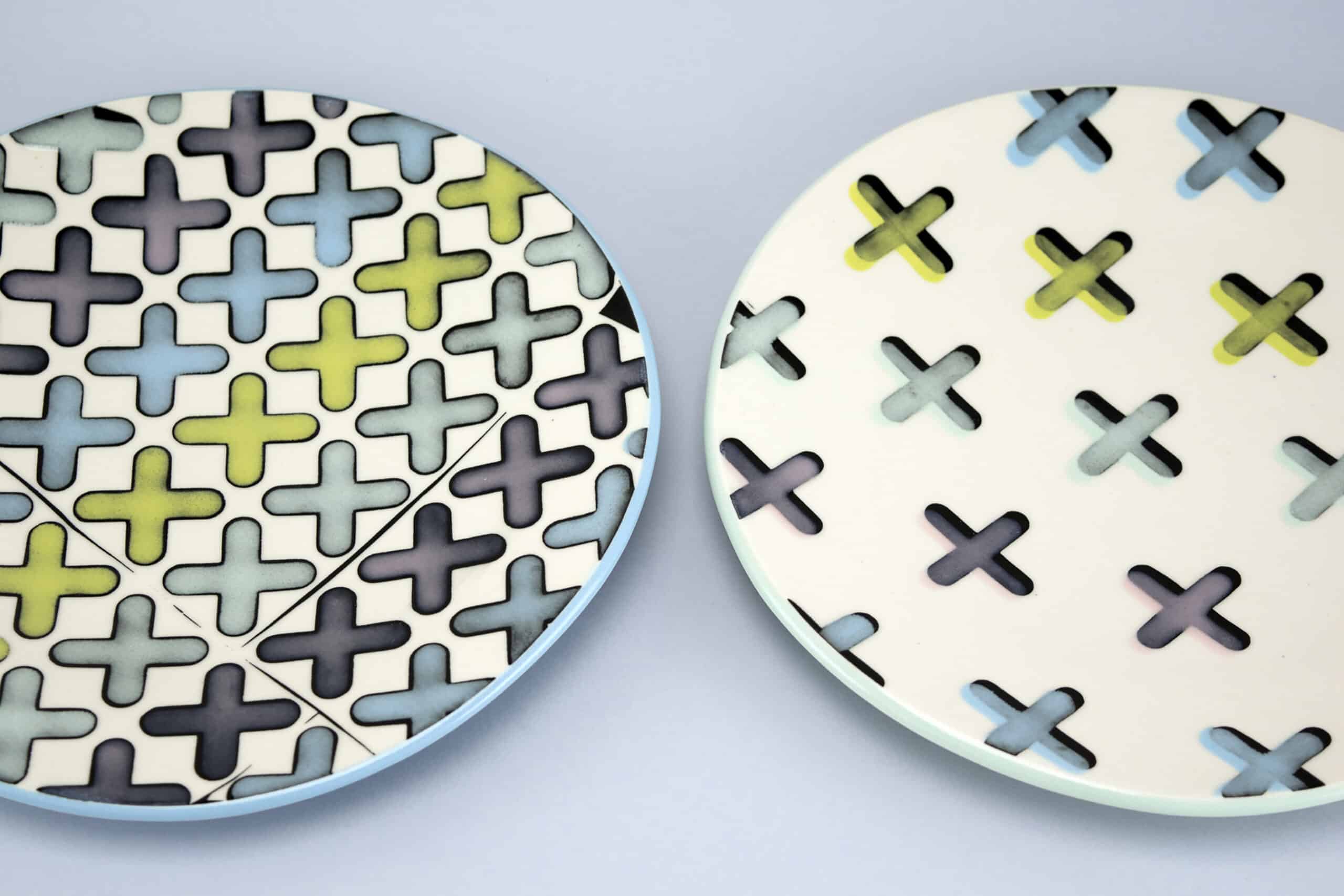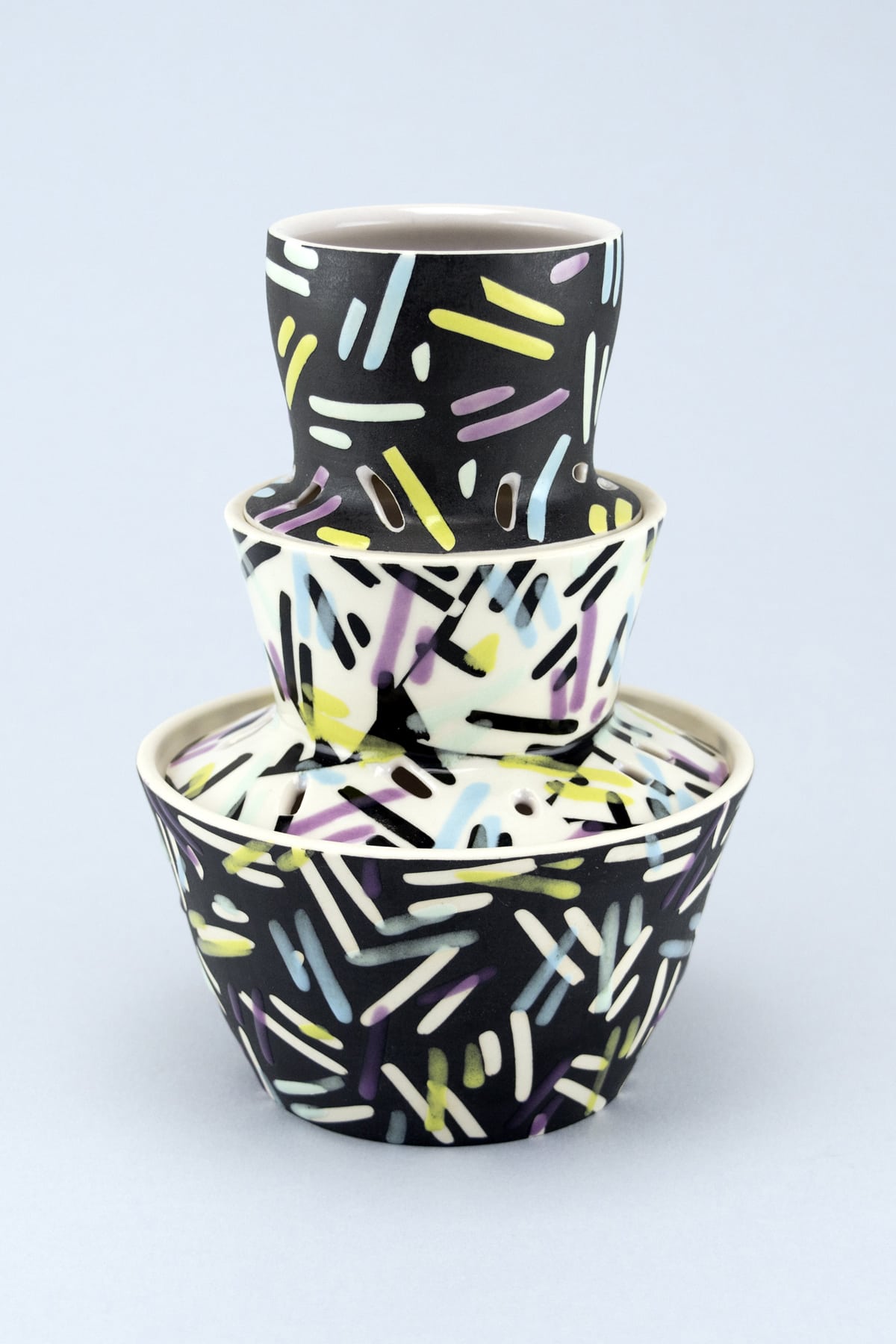Find Your Flow: Throwing Intensive
Learn and develop your throwing skills on the potter’s wheel to make functional pottery as expressive art. We will focus on practice and repetition as the foundation for building tacit [body] knowledge and gain proficiency in making cups, bowls, plates, pitchers and more. New techniques will be introduced everyday for throwing, trimming and decorating greenware. You will improve your visual language through experimentation with form and surface as well as gain an understanding of how to balance aesthetic expression and functional nuances that invite use of the pieces you create.
You will leave with bisqued pots. There will be one Cone 6 oxidation firing. Please bring with you 5-10 small to medium sized bisqued pieces made from cone 6 clay. Bisqueware will be provided for testing glazes and for beginning throwers. Bring your questions, source material, tools, or any other curiosities.
Adrienne Eliades is a studio potter and educator living in Vancouver, Washington. She earned a BA in studio art from the University of North Carolina at Wilmington, and an MFA from University of Florida. Her works and writing are featured in numerous publications including UPPERCASE Magazine, Craft in America and Pottery Making Illustrated. Ceramics Monthly named Adrienne an Emerging Artist in 2018. In addition to maintaining a vibrant studio practice, Adrienne teaches at Lewis and Clark College and presents workshops nationwide.
Instagram: @bugaboo_eyes
Faculty: Adrienne Eliades
Dates: June 18- 24, 2023
Each week begins on Sunday at 9 a.m. and ends Saturday morning after the kilns are unloaded.
Tuition: $940
Tuition, room and board: $1,966
Lab Fee: $85, includes clay, firing, and shared supplies; you will be asked to bring additional materials.
Skill Level: All levels
Enrollment limited to 10 students
Improve your ability to make functional pottery on the potter’s wheel. Strengthen your physical technique to throw, decorate, and finish work as well as your ability to see function/form relationships in pots through demonstration, repetition, and experimentation.


